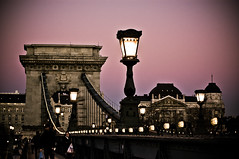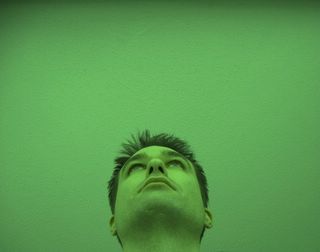Saturday, May 07, 2011
The Grand Tour pt 8: The Apple and the Sickle
Hills, gray and raining. Deep green forests. Heavy clouds hovered only a few feet above the ground, mingling with the tree tops. Budapest is the land in the clouds, mist glistening on hillside rocks barely glimpsed through the clouds.
On our train ride from Budapest towards the Czech border, a girl and her mother rode in our compartment. The girl’s name was Regina, around sixteen or seventeen years old. Most beautiful girl in the world, sleeping next to me, pummeled in and out sleep on a rocking train.
For the second consecutive night I stayed awake, playing games of pretending to be asleep but with my eyes cracked open so as to peer unobserved on her sleeping face, cherub lips parted slightly to breathe. The mother fights sleep just as diligently, to keep watch over her gosling. I inched closer to the daughter’s side with glacial patience to obtain my objective; letting my arm fall to rest against her bare thigh, as though I simply shifted in my sleep.
In the morning, the sun rises on her face and she wakes up. Vibrant, talking to us about her favorite breeds of dogs and her home and her dreams of one day going to America. She wants to be pen pals and gives us her address. Even her mother warms to us in the morning light and invites us to stay with them should we ever find ourselves in Prague. We get off the train.
Odlef’s grandparents were wealthy and respected in this small Hungarian town. The grandfather was a respected doctor, with a hospital and a boulevard named after him.
The house is a stout stone structure, high ceilings and expansive rooms, with doors that are ten feet high. Thick stone walls keep the rooms cool during the day, and in the early evening we close the shutters over windows barred to keep out theives. Portraits hang on the walls of the family ancestry, from oils to black and white photographs of ancestors, grim and strong. A bishop stands on a balcony in a Transylvanian church. His wife, the tragedy figure, died young from tuberculosis.
There is a garden out back with cherry, nut, and plum trees, squares of flowers, isles in purple bloom, perfumed. The weeds are growing high so Odlef wanders through the garden with a sickle in hand, broad sweeping arcs sculpting the garden, chopping down what does not belong.
Look out back, past the gardens to the property beyond. See the steep roof, stained chimneys and lightning rods? This is their original mansion, taken away by communism. They are in the courts to take it back. They have plans, Odlef’s father and uncles, to reclaim that which was taken and to restore what has decayed. But some things are gone. Russian soldiers had taken the house, shit in the tub, and stolen the silver. Some spoons and knives were found later, scattered across town. But the fine china and teapots now sit in Russian cabinets.
Subscribe to:
Posts (Atom)

